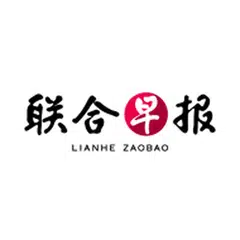Elon Musk offended both sides of the Taiwan Strait
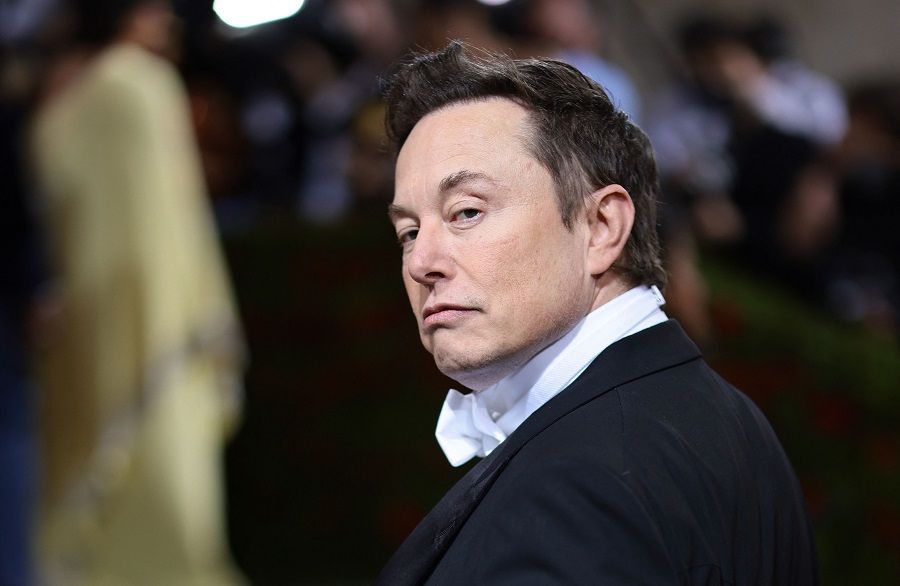
The bold and eccentric Elon Musk, the world's richest man and CEO of American electric car giant Tesla, has set the internet ablaze again, this time attracting the attention of both sides of the Taiwan Strait and triggering a public opinion storm.
In a Financial Times interview published on 7 October, Musk called conflict over Taiwan "inevitable", and one that would not only affect Tesla but also put Apple "in very deep trouble", with the global economy taking an estimated 30% hit.
To prevent this conflict, he boldly suggested the need "to figure out a special administrative zone for Taiwan that is reasonably palatable" but may not make everyone happy. He added that "it's possible, and I think probably, in fact, that they could have an arrangement that's more lenient than Hong Kong".
The suggestion immediately called to mind Beijing's "one country, two systems" plan for Taiwan, triggering mixed reactions online. While it was met with strong backlash from Taiwanese society, opinions from the mainland were not enthusiastic either.
Taiwan's strong opposition
A day after the interview was published, Taiwan's Mainland Affairs Council Deputy Minister Chiu Chui-cheng told Bloomberg that Taiwan will not accept Musk's proposal "based on investment interests to turn a democratic country into a special administration".
Chiu emphasised that Taiwan played a crucial role in regional democratic politics and global technology and economy, and was not goods to be traded in commercial transactions.
"Taiwan sells many products, but our freedom and democracy are not for sale." - Taiwan Representative to the US Hsiao Bi-khim
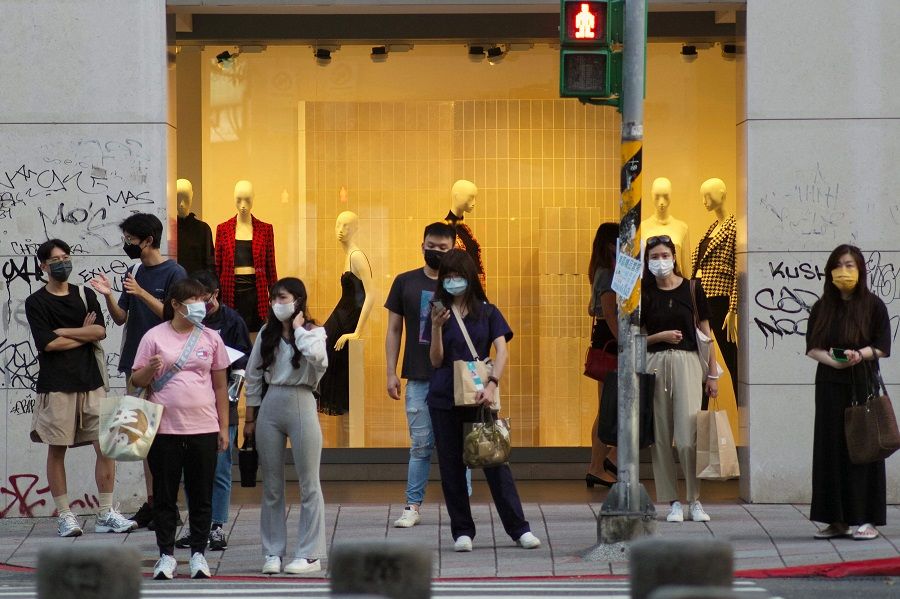
But he still offered Musk a gesture of goodwill and pointed out that "Taiwan has an advantage in the chip and tech supply chain and has long worked with Tesla". He further welcomed Musk and other global business leaders to visit Taiwan to "see Taiwan's democracy, freedom and innovation for themselves".
However, Taiwan's ruling Democratic Progressive Party (DPP) spokesperson Huang Tsai-ling gave a sharper response. Huang told Taiwanese media on 8 October that tensions in the Taiwan Strait were entirely due to the mainland's desire to unilaterally change the status quo, and criticised Musk's proposal for "not reflecting on and condemning the Chinese Communist Party's misconduct, and sucking up to the aggressor at the expense of Taiwan".
Huang added that Musk's suggestion hurt democracy and was even more unacceptable to the Taiwanese people.
Taiwan Representative to the US Hsiao Bi-khim also stated implicitly in a tweet, "Taiwan sells many products, but our freedom and democracy are not for sale. Any lasting proposal for our future must be determined peacefully, free from coercion, and respectful of the democratic wishes of the people of Taiwan."
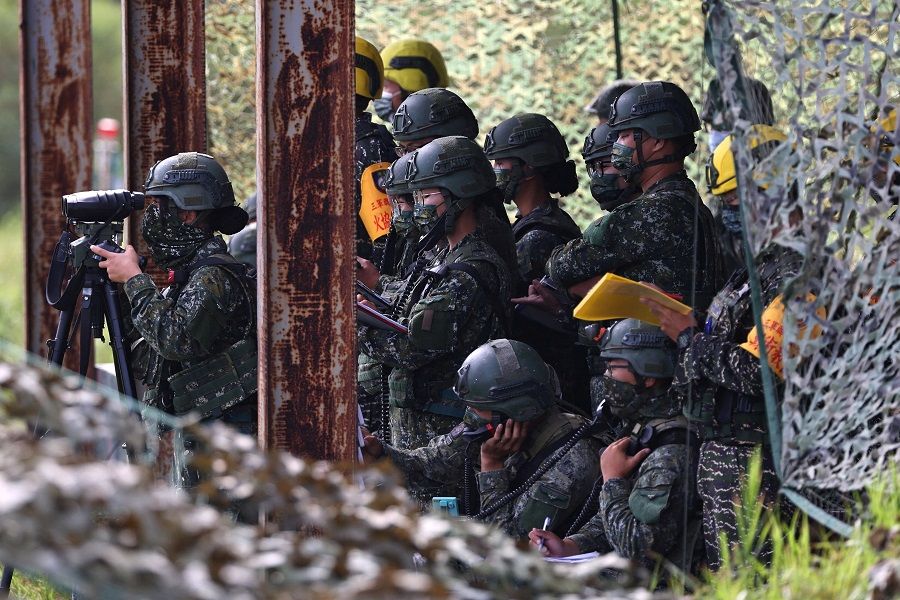
Meanwhile, DPP legislator Chao Tien-lin proposed that consumers from Taiwan and other democratic countries should boycott Tesla indefinitely if Musk does not change his tune.
DPP legislator Wang Ting-yu even mocked Musk's idea saying, "My sincere suggestion... would be to put Musk's electric vehicle brand under China's BYD, and allow Musk to manage it himself under a more lenient arrangement."
Meanwhile, Johnny Chiang, former chairman of Taiwan's main opposition party Kuomintang, pointed the finger at the DPP instead, suggesting that the inevitable cross-strait conflict and Musk's proposal illustrate the world's concern over security in the Taiwan Strait, and that no one wants to see the mass destruction of war, including the impact on the global economy. He called for Taiwan President Tsai Ing-wen to properly address the issue.
"[Mainland] China uses commerce to extend their governance, and this is true for not just Taiwan but the whole world." - DPP Taipei mayor candidate Chen Shih-chung
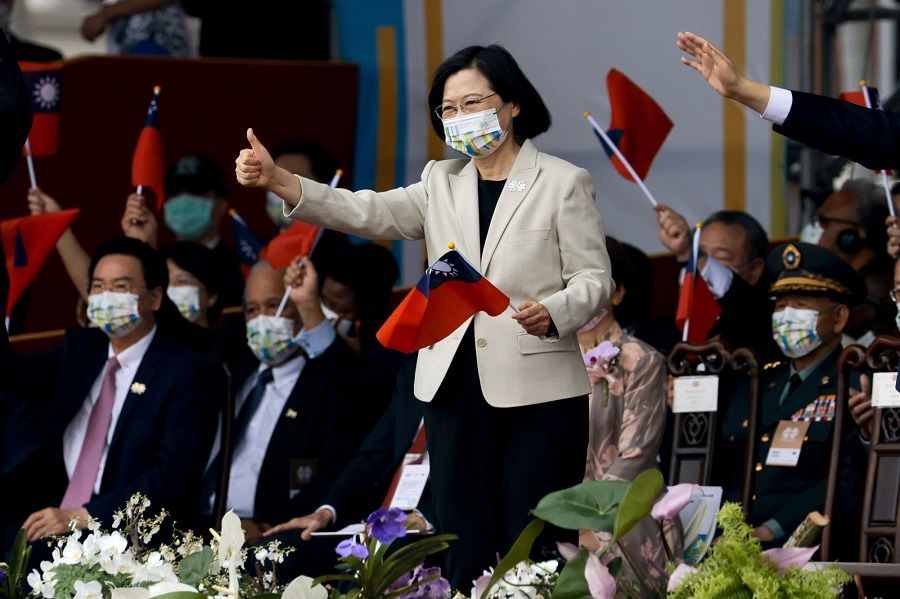
DPP Taipei mayor candidate Chen Shih-chung on 9 October tweeted: "[Mainland] China uses commerce to extend their governance, and this is true for not just Taiwan but the whole world."
He then suggested that Musk should "consider moving his HQ to Taipei, and after realizing how we do business right, he won't make those same statements again".
The mainland's altered stance
As a shrewd businessman, Musk would have expected Taiwan's backlash towards his proposal. But he probably did not expect his remark to not sit well with the mainland either.
When asked by a Reuters reporter to comment on Musk's proposal to establish Taiwan as a special administrative zone during a regular press conference on 8 October, China's foreign ministry spokesperson Mao Ning made it clear that the "Taiwan question is China's internal affair", alluding that Musk's remark was an interference.
She added, "China's position on resolving the Taiwan question is consistent and clear. We remain committed to the basic principle of peaceful reunification and One Country, Two Systems and aim to work with the greatest sincerity and effort to achieve peaceful reunification." She reiterated that the mainland will "resolutely defeat attempts to pursue the 'Taiwan independence' separatist agenda, push back interference by external forces, and safeguard our sovereignty and territorial integrity".
Mao's response and the media's choice of words seem to warn Musk to "mind his own business".
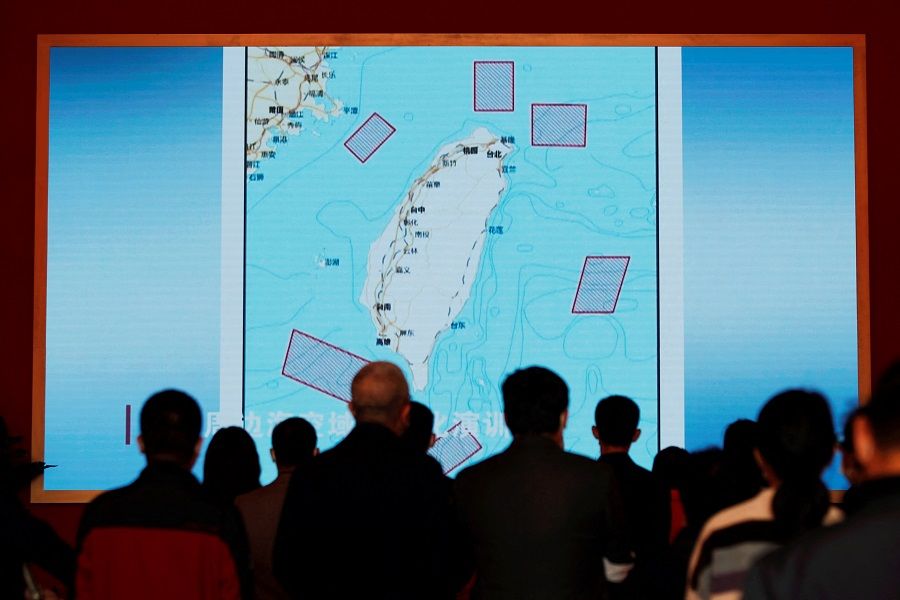
However, mainland Chinese state media CCTV News reported on 8 October that Mao was actually responding to Musk's "inappropriate" statement about the Taiwan issue, given the article headline "Musk Makes Inappropriate Remarks about China's Taiwan Issue, Foreign Ministry Responds" (马斯克妄议中国台湾问题,外交部回应). China News (中国新闻网), Huanqiu.com (环球网), The Paper (澎湃新闻) and several other media outlets reposted the news as well.
Mao's response and the media's choice of words seem to warn Musk to "mind his own business". However, the news report with the aforementioned headline can no longer be found at the time of writing, and the words "inappropriate remarks" have been removed from other relevant articles.
Chinese ambassador to the US Qin Gang tweeted to "thank [Elon Musk] for his call for peace across the Taiwan Strait and his idea about establishing a special administrative zone for Taiwan."
When did mainland China change its stance? Soon after the regular foreign ministry press briefing on 8 October, Chinese ambassador to the US Qin Gang tweeted to "thank [Musk] for his call for peace across the Taiwan Strait and his idea about establishing a special administrative zone for Taiwan."
Qin retweeted Musk's interview and tweeted that "Peaceful reunification and One Country, Two Systems are [China's] basic principles for resolving the Taiwan question and the best approach to realizing national reunification."
He added, "Provided that China's sovereignty, security and development interests are guaranteed, after reunification Taiwan will enjoy a high degree of autonomy as a special administrative region, and a vast space for development." Furthermore, the rights and interests of the people in Taiwan will be fully protected, and both sides of the Taiwan Strait "will share the glory of national rejuvenation.
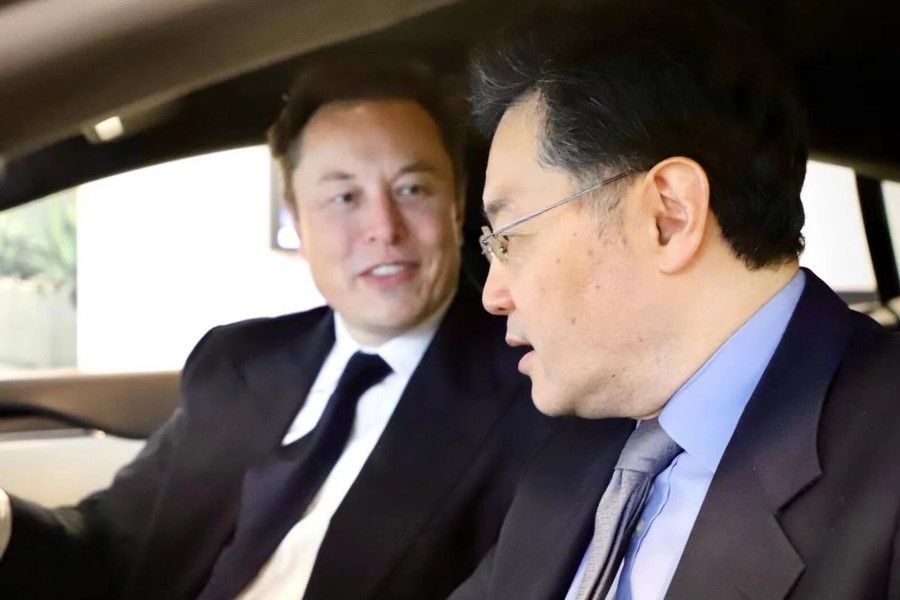
Then, at the regular press briefing on 9 October, when Mao Ning was asked by a CCTV reporter if there was a further comment, she no longer emphasised that this was an issue of China's domestic politics, but echoed Qin's line, stressing that "peaceful reunification and One Country, Two Systems is the basic principle for resolving the Taiwan question and the best way to realize national reunification".
She added, "Provided that national sovereignty, security and development interests are ensured, Taiwan can adopt a high degree of autonomy as a special administrative region."
No one knows what happened within the 24 hours for Beijing to change its stance, but Musk's suggestion of a "Taiwan SAR" is clearly catering to the mainland authorities.
Does Musk really believe this is a good idea, or is he thinking from a business perspective? Is he looking for a way back to the mainland's good graces after he angered Beijing by providing Starlink technology to Ukraine?
In the same interview, Musk revealed that Beijing clearly disapproved of his recent rollout of Starlink in Ukraine to help the military circumvent Russia's cut-off of the internet, and sought assurances that he would not sell Starlink in China.
As a businessman who values the mainland China market, Musk is aware of the importance of maintaining good relations with Beijing.
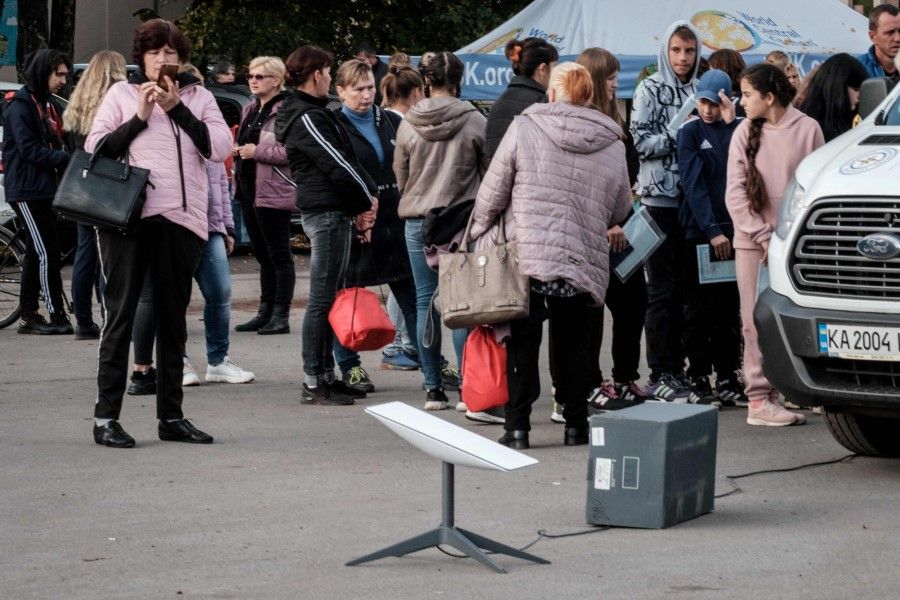
As a businessman who values the mainland China market, Musk is aware of the importance of maintaining good relations with Beijing. Tesla entered the China market in 2013, and the Model Y sold 169,853 units in 2021; the Model 3 sold 150,890 units. Tesla's Gigafactory opened in Shanghai in 2018 and became the Gigafactory with the highest production capacity after upgrading its facilities, taking on 30% to 50% of total production. Unfortunately, his latest attempt at winning favour might have missed the mark.
An automaker with multiple interests
The Taiwan issue is not the first time Musk has treaded on political issues and raised his "unique" views.
The same week, Musk tweeted to hundreds of millions of followers his suggestions on the Ukraine war, including redoing elections of annexed regions under UN supervision, recognising Crimea as part of Russia, assuring water supply to Crimea, and Ukraine remaining neutral.
He even polled Twitter users on whether they agreed with his "peace plan" - votes against and criticisms followed.
Former Global Times editor-in-chief Hu Xijin agreed with Musk's comments on Taiwan. As a keen commentator of current affairs, Hu had previously criticised Musk on the Ukraine issue, saying that he believed too much in the freedom of speech and would be "taught a lesson".
"You are interested in a lot of things for an automaker; you should just stick to selling cars." - Chinese netizens
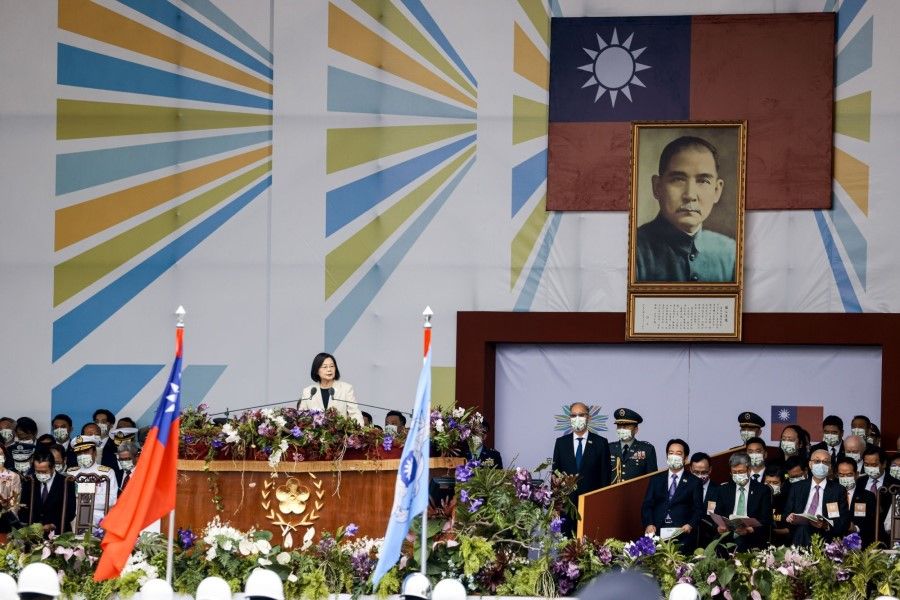
Hu affirmed Musk's interview on 7 October; and on 9 October, he reiterated that he felt Musk's suggestion of a Taiwan SAR was interesting and worth considering. He added that Musk was a unique character and hoped he would hold to this view in the face of pressure from Taiwan authorities and US political elites.
In comparison, netizens have not been so polite.
Many offended Taiwanese netizens are calling for a Tesla boycott, and declaring Musk as a public enemy of the free and democratic world who should simply get lost.
Others say that Musk is a pragmatic businessman and probably only cares about Tesla's market in mainland China, and his understanding of freedom and democracy is too immature.
Some mainland China netizens are also not buying it, saying, "You are interested in a lot of things for an automaker; you should just stick to selling cars."
Mainland China netizens also mocked that the Chinese foreign ministry truly meant to say: "Well said. Next time, don't say anything."
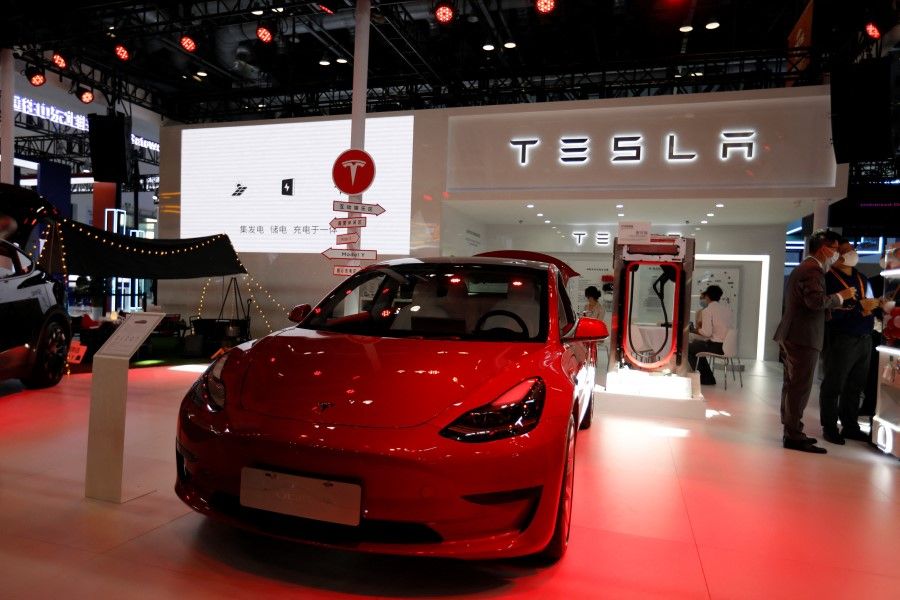
Controversy over a businessman talking politics
Financial Times interviewer Roula Khalaf has quite an accurate assessment of Musk: "It may be Musk's realisation that business decisions can no longer be made without regard to security and geopolitics - or perhaps it's simply an arrogant belief that he has all the answers - that now leads him to offer his own solutions to the world's most complex geopolitical problems."
Whether one feels mainland China is "forcing politics through business" or Musk is "making business through politics", the two aspects cannot exist entirely independently of each other.
Musk raised his suggestions based on his own commercial interests, but ended up falling short of pleasing anyone, which confirms the trends and complicated relations in the Taiwan Strait and between China and the US. This also has great implications for the commercial activities and economies of all three parties.
After being the target of controversy because of freedom of speech, would Musk feel he has been "taught a lesson"?
